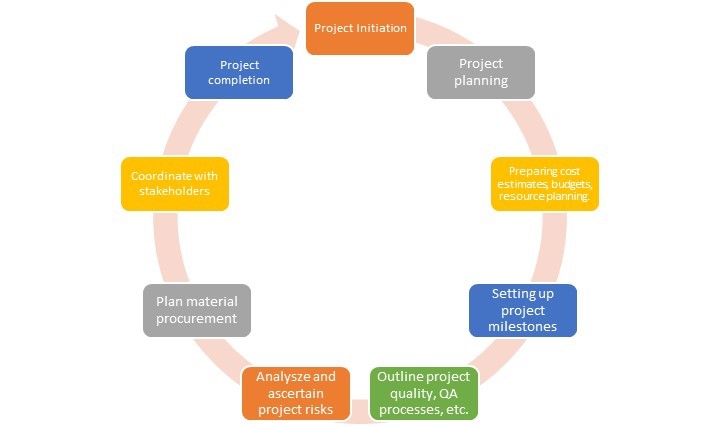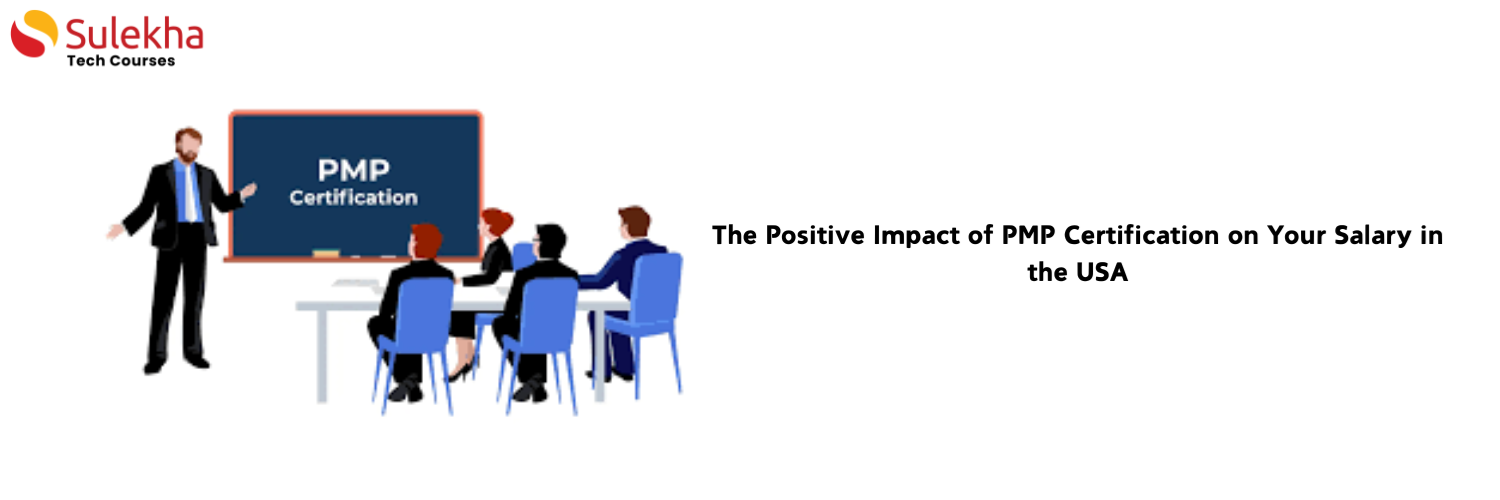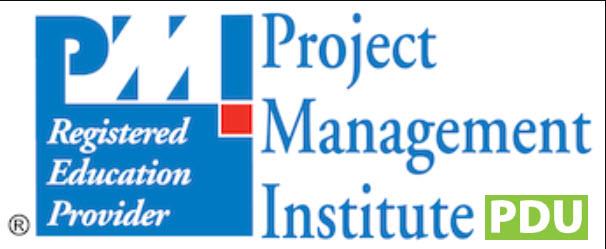Explained: Project Management Professional Certification and its career possibilities
Who can opt for PMP certification?
Project Management certification is for those professionals and students who want to specialize in project management. The certification course will expose one to the methodologies and processes applied in real time project management.
The certification is most apt for:
- Assistant/Associate Project Managers
- Team leads/Managers
- Software developers in leadership positions
- Project Engineers
- Management Professionals, etc.
Minimum qualifications for enrolling in a PMP certification course
The Project Management Institute (PMI) has laid down certain minimum qualifications that every PMP certification aspirant must possess. This includes both academic credentials as well as practical experience in project management.
PMP aspirants must possess at least an undergraduate degree in project management or management related disciplines. Plus, they must also acquire practical experience in project management or equivalent function in order to be eligible for enrolment.
How to gear up for the PMP certification?
Like any other professional qualification exam, Project Manager certification also requires a great deal of mental and physical effort from the part of the aspirant. Thankfully, the battle is not to be fought single-handedly. There are training programs, online classes and boot camp courses where a student can gain in-depth learning of core subject areas tested in the exam.

Classroom training: These instructor-led classroom sessions give the students a live experience of preparing for the exam with peers bearing the same objective. Direct interaction with the tutors gives an opportunity for the student to clear doubts as and when they arise.
Online training: Online PMP courses gives aspirant much needed flexibility in preparing for the exam. Online training is an option for project managers who want to balance their working hours and training simultaneously.
Boot camps: Boot camps are rapid revision sessions where the entire syllabus tested in the exam is brushed through by an expert tutor, usually a project manager. Boot camps span anywhere from few days to a week. They are ideally taken a month or so before the exam date approach nearer.
Outline of the duties and responsibilities of a project manager
Project initiation: The project manager will discuss with stakeholder to identify the project objective, requirements and deliverables.
Project planning: The project manager will estimate the resources required, determine the additional quantum of resources that will be required as the project progresses, when and how to allocate the resources, etc.
Preparing cost estimates, budgets, etc. Cost estimates and budgets are required to ensure that the financial outlay for the project is properly charted out, monitored and controlled at all stages of execution.
Setting up project milestones: project milestones ensure that the project is progressing at a speed that is healthy to meet the deadline. The milestones will include submission and passing of wireframes, securing stakeholder approval, etc.
Quality assurance: Quality assurance is of paramount importance to a project manager. He/she has to outline the QA process based on which test cases, scenarios, etc. will be created and executed in order to achieve the benchmark deliverables.
Analysing project risks: The project manager has to analyse the scenario in which the project is progressing and take necessary countermeasures in case an exigency is to develop.
Plan material procurement: Material procurement comes into play in projects involving creation of tangible assets like infrastructure A project manager has to integrate the cost estimates to the material procurement plan in order to achieve project goals.
Coordinate with project stakeholders: Stakeholders are people who have an interest in the project. The project manager has to coordinate with the stakeholders to ensure that the project is progressing at par with their expectations and to their satisfaction.
Project completion: The wrapping up of the project is usually signified by transfer of assets created, handing over of documents, source code, etc. The project manager has to oversee the project completion process to ensure that the stakeholder(s) receive the deliverables in the agreed manner.
Conclusion
PMP is a Launchpad for management professionals who want to take their career to its zenith. It is not easy but it’s worth the effort.
Find a course provider to learn PMP
Java training | J2EE training | J2EE Jboss training | Apache JMeter trainingTake the next step towards your professional goals in PMP
Don't hesitate to talk with our course advisor right now
Receive a call
Contact NowMake a call
+1-732-338-7323Take our FREE Skill Assessment Test to discover your strengths and earn a certificate upon completion.
Enroll for the next batch
PMP Hands-on Training with Job Placement
- Sep 1 2025
- Online
PMP
- Sep 2 2025
- Online
PMP Hands-on Training with Job Placement
- Sep 3 2025
- Online
PMP
- Sep 4 2025
- Online
PMP Hands-on Training with Job Placement
- Sep 5 2025
- Online
Related blogs on PMP to learn more

What are the 5 phases of project management?
A streamlined approach to ensure project success by breaking it into five essential stages: Initiation, Planning, Execution, Monitoring & Controlling, and Closing. Each phase builds on the other, guiding the team from concept to completion with clear

How a PMP Certification Boosts Your Salary Potential in the USA
In the competitive landscape of project management, obtaining a Project Management Professional (PMP) certification can be a transformative step for your career. This globally recognized credential validates your skills and knowledge and significantl

How PMP Credential Positively Impacts Your Salary in the USA
In the competitive landscape of project management, obtaining a Project Management Professional (PMP) certification can be a transformative step for your career.

Guide to Resources for Product Managers
Navigating the world of product management can be challenging, especially for newcomers. This guide will equip you with top-trending resources to enhance your skills and knowledge as a product manager.

Principles of Management
Learn about the key principles and levels of management, including insights from Henry Fayol, to understand how effective planning, organizing, and directing can drive organizational success.

How did I successfully complete PMP certification course?
Our student's review of how they successfully completed PMP Certification course.

Top 10 Project Management Tools for Any Task
Explore the top 10 project management tools for any task and delve into the pros and cons of project management tools, empowering you to make informed decisions for your project management needs.

What are the qualities an IT project manager should have?
Top five qualities should be an IT project manager’s asset The role of an IT project manager is to plan, monitor, manage, and strategize the project and the team. They are supposed to accomplish the given task within a deadline of time and cost. The

What are PDUs -How to earn PDUs for PMP
What are PDUs? PDUs are abbreviation for Professional Development Units, were a one hour is blocked for learning, teaching and volunteering. How to earn PDUs for PMP renewal? There are two ways to earn PDUs for PMP renewal and they are Education PDUs

List of Best New York City Project Management Certification Training Providers
In today’s competitive job market, credentials matter more than ever. With Project Management Professional (PMP)® credentials in NYC you are more marketable also you will have access to better opportunities. Project Management Certification NYC ensur
Latest blogs on technology to explore

Understanding Artificial Intelligence: Hype, Reality, and the Road Ahead
Explore the reality of Artificial Intelligence (AI) — its impact, how it works, and its potential risks. Understand AI's benefits, challenges, and how to navigate its role in shaping industries and everyday life with expert training programs

How Much Do Healthcare Administrators Make?
Discover how much healthcare administrators make, the importance of healthcare, career opportunities, and potential job roles. Learn about salary ranges, career growth, and training programs with Sulekha to kickstart your healthcare administration jo

How to Gain the High-Income Skills Employers Are Looking For?
Discover top high-income skills like software development, data analysis, AI, and project management that employers seek. Learn key skills and growth opportunities to boost your career.

What Companies Expect from Product Managers in 2025: Skills, Tools, and Trends
Explore what companies expect from Product Managers in 2025, including essential skills, tools, certifications, and salary trends. Learn how to stay ahead in a rapidly evolving, tech-driven product management landscape.

Breaking Into AI Engineering: Skills, Salaries, and Demand in the US
Discover how to break into AI engineering with insights on essential skills, salary expectations, and rising demand in the US. Learn about career paths, certifications, and how to succeed in one of tech’s fastest-growing fields.

Cybersecurity Training: Powering Digital Defense
Explore top cybersecurity training programs in the USA to meet rising demand in digital defense. Learn about certifications, salaries, and career opportunities in this high-growth field.

Why Pursue Data Science Training?
Empower your career in a data-driven world. Learn why data science training is crucial for high-demand jobs, informed decisions, and staying ahead with essential skills.

What Does a Cybersecurity Analyst Do? 2025
Discover the vital role of a Cybersecurity Analyst in 2025, protecting organizations from evolving cyber threats through monitoring, threat assessment, and incident response. Learn about career paths, key skills, certifications, and why now is the be

Artificial intelligence in healthcare: Medical and Diagnosis field
Artificial intelligence in healthcare: Medical and Diagnosis field

iOS 18.5 Is Here: 7 Reasons You Should Update Right Now
In this blog, we shall discuss Apple releases iOS 18.5 with new features and bug fixes
- PMI Risk Management Professional
- Agile Scrum Master
- SAFe 5 Scrum Master (SSM) Certification Training
- Agile Project Management
- Agile Scrum BA
- Project Management Professional PMI PMP V7
- IT Project Manager
- Agile And Scrum Foundation Certification Training
- Navigating Change Management In IT Teams
- PMI PMP
- Scrum Master Certification
- PMI Risk Management Professional (PMI-RMP) 6th Edition